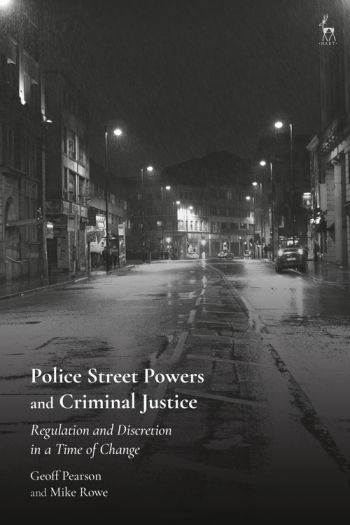
Police Street Powers and Criminal Justice analyses the utilisation, regulation and legitimacy of police powers. Drawing upon six-years of ethnographic research in two police forces in England, this book uncovers the importance of time and place, supervision and monitoring, local policies and law. Covering a period when the police were under intense scrutiny and subject to austerity measures, the authors contend that the concept of police culture does not help us understand police discretion. They argue that change is a dominant feature of policing and identify fragmented responses to law and policy reform, varying between police stations, across different policing roles, and between senior and frontline ranks.